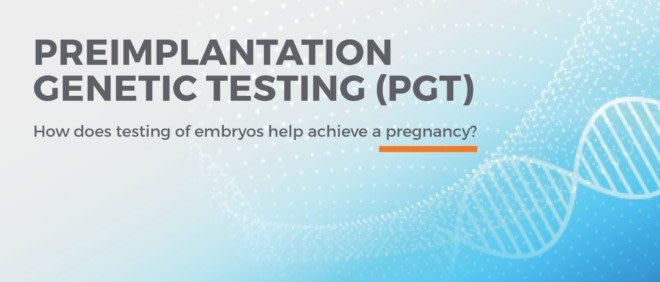Proudly part of the City Fertility Network
Proudly part of the City Fertility Network

 By Dr Simone Campbell, a specialist at Rainbow Fertility Brisbane City
By Dr Simone Campbell, a specialist at Rainbow Fertility Brisbane City
Embryos with abnormal chromosomes may lead to a failed pregnancy by preventing implantation to the uterine lining, be the cause of a miscarriage, or result in the birth of a baby with a genetic condition. By undertaking Preimplantation Genetic Testing (PGT) of embryos it can help in selecting the ‘normal’ embryos only for transfer and in turn, increase the chances of a successful pregnancy.
PGT can be useful for cases of recurrent miscarriage; advanced maternal age where time is critical; a family history of chromosomal disorders; patients who have had several unsuccessful IVF cycles; severe male infertility; or a family history of X-linked disease.
By choosing only the chromosomally ‘normal’ embryos via PGT it can help: reduce the incidence of miscarriage; improve IVF success; reduce the number of IVF cycles required to achieve a successful outcome; reduce the risk of a live-born child with a chromosomal abnormality, and support elective single-embryo transfer to reduce multiple pregnancies.
At Rainbow Fertility we employ the most advanced preimplantation genetic testing method available called Next Generation Sequencing (NGS). NGS is an extremely sensitive method with the analysis including several hundred thousand readings for each chromosome.
Sample cells are taken from the embryo by biopsy. After the biopsy, the removed cells are placed in a small test tube and their DNA is amplified (replicated). The cells are no longer viable in any way after this process and can only be used for the tests.
The cells are then analysed to verify that all 23 pairs of chromosomes, including X and Y, are identified. While the PGT of the cells is taking place, the embryos are frozen and kept in storage. Once the testing is complete and if a preferred normal embryo is identified, it is then thawed and transferred into the uterus, at the appropriate time, on a subsequent frozen embryo transfer cycle.
The associated risks of undertaking PGT are very low with less than 1% accidental damage to an embryo during removal of cells in the hands of an experienced embryologist. No part of the future foetus will be affected because only a few cells are removed, and cells are only taken from the trophectoderm.
The accuracy of PGT for aneuploidy is approximately 98%, this means there is an error rate of 2%. Due to this small chance of misdiagnosis we recommend prenatal testing as well.
If you have any questions or would like further information regarding PGT, please contact our friendly team on 1300 222 623 or email: info@rainbowfertility.com.au